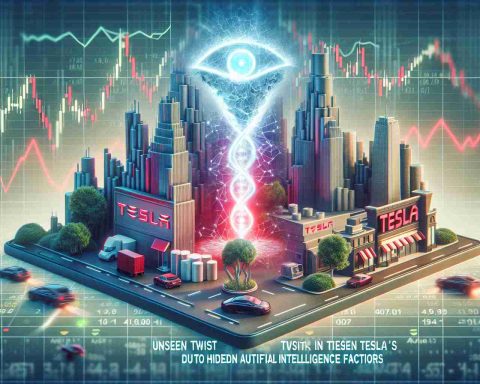Stay Updated on the Latest Automotive Innovations!
In the fast-evolving automotive landscape, staying informed can be a challenge. Here are the latest updates that are making waves as of January 9, 2025.
Mercedes-Benz Introduces the All-Electric G580 EQ in India
In a groundbreaking move, Mercedes-Benz has launched the G580 EQ, the electric version of the iconic G Wagon, in India with a starting price of ₹3 crore (ex-showroom). This advanced SUV, available exclusively in the Edition One variant, features a robust 4×4 drivetrain designed for exceptional off-road performance. Maintaining its classic boxy design, the G580 EQ boasts impressive specifications, including a water-wading capability of 850 mm and a ground clearance of 250 mm. The vehicle is powered by a substantial 117 kWh battery, promising a range of approximately 420 km on a single charge. This luxurious off-roader will be offered in India as a Completely Built-Up (CBU) unit.
Bajaj Pulse Forward with the 2025 RS200
Bajaj has also launched the 2025 Pulsar RS200 at an introductory price of ₹1.84 lakh (ex-showroom). This updated motorcycle showcases a redesigned tail lamp assembly along with fresh colors and graphics while retaining its classic front design and engine. Enhanced modern features include an updated digital instrument cluster with Bluetooth connectivity, keeping it competitive in the marketplace.
Tata Unveils New Models for 2025
On the other hand, Tata Motors has introduced three refreshed models for 2025, including the Tiago, Tiago EV, and Tigor. The Tiago starts at ₹5 lakh (ex-showroom), the Tiago EV at ₹8 lakh, and the Tigor at ₹6 lakh, each presenting exciting new features and variants.
Stay tuned for more updates on the cutting-edge advancements and upcoming vehicles in the automotive sector!
Discover the Future of Driving: Exciting Automotive Innovations for 2025
Stay Updated on the Latest Automotive Innovations!
The automotive industry is witnessing an exciting transformation with groundbreaking innovations and new offerings as we move into 2025. Let’s delve into the latest trends and developments that are shaping the future of transportation.
Innovations in Electric Vehicles (EVs)
Mercedes-Benz’s G580 EQ: A New Standard in Luxury EVs
The recent debut of the Mercedes-Benz G580 EQ, the all-electric version of the legendary G Wagon, has set a new benchmark for luxury electric SUVs. With a price tag of ₹3 crore (ex-showroom) in India, this vehicle is not just about aesthetics; it features a powerful 4×4 drivetrain suited for off-road adventures. The 117 kWh battery supplies an impressive range of about 420 km on a single charge, while the vehicle’s robust design allows for water-wading capabilities of up to 850 mm. This launch not only highlights the shift towards electric mobility but also reinforces the trend of blending luxury with sustainability in the automotive sector.
Motorcycle Market Evolution
Bajaj’s 2025 Pulsar RS200: A Sporty Update
Bajaj, known for its performance motorcycles, has refreshed its Pulsar RS200 for 2025. Priced at ₹1.84 lakh (ex-showroom), this model features modern upgrades including a redesigned tail lamp and an enhanced digital instrument cluster with Bluetooth connectivity. This move reflects the growing demand for smart technologies in motorcycles, competing strongly against rivals in the sporty segment.
Affordable EV Solutions
Tata Motors’ New Offerings: Embracing Electric Mobility
Tata Motors is proactively advancing its portfolio with the launch of three updated models for 2025: the Tiago, Tiago EV, and Tigor. Starting prices range from ₹5 lakh to ₹8 lakh for the Tiago EV, showcasing Tata’s commitment to making electric mobility accessible. This strategic introduction emphasizes the trend towards mainstream EV adoption, particularly in markets like India.
Key Trends and Insights
1. Rise of Electric Vehicles: The automotive industry is rapidly adapting to electric vehicle technology, driven by environmental concerns and government initiatives aimed at reducing carbon emissions.
2. Integration of Smart Technologies: Modern vehicles are increasingly feature-rich, incorporating connectivity options such as Bluetooth, smart dashboards, and even autonomous driving capabilities.
3. Focus on Affordability and Accessibility: Companies like Tata are aiming to make electric vehicles more affordable, broadening the customer base and encouraging wider adoption.
Pros and Cons of Recent Innovations
Pros:
– Sustainability: Electric vehicles significantly reduce carbon footprints, aligning with global environmental efforts.
– Advanced Features: Innovations such as Bluetooth connectivity and smart dashboards enhance user experience.
– Luxury and Performance: Brands like Mercedes-Benz maintain luxury standards in their EV offerings, attracting high-end consumers.
Cons:
– High Initial Costs: Electric vehicles and advanced models often come with a high price tag, which can be a barrier for many consumers.
– Charging Infrastructure: The existing charging infrastructure may not meet the growing demand for EVs, posing a challenge for potential buyers.
Future Predictions
Looking ahead, the automotive industry is likely to see increased collaboration between tech companies and automakers, leading to rapid innovations in EV technologies. With more brands entering the market, competitive pricing and expanding infrastructure will also play pivotal roles in the widespread acceptance of electric vehicles.
Stay engaged with the latest news and trends in the automotive realm by visiting Car and Driver for comprehensive coverage and updates.









